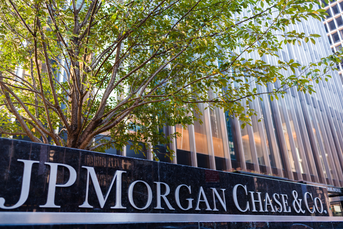MassMutual, The Hartford skip retained accounts, cut checks for beneficiaries
Insurers among the few that buck industry trend of sending survivors checkbooks -- rather than lump-sum checks
Massachusetts Mutual Life Insurance Co., Aflac Inc. and Hartford Financial Services Group Inc. are among U.S. life insurers that buck the industry practice of automatically holding onto death benefits.
MassMutual, a policyholder-owned carrier in Springfield, Massachusetts, Aflac in Columbus, Georgia, and Hartford in the Connecticut city of the same name, automatically send survivors a bank check for insurance proceeds after death claims are approved, according to company spokesmen. Other insurers generally keep the cash in their retained-asset accounts and issue the survivors checkbooks, which are essentially IOUs, Bloomberg Markets magazine reported on July 28.
“These accounts were invented not to help consumers, but to help insurance companies,” said Bob Hunter, director of insurance for the Consumer Federation of America in Washington. “I can’t think of any reason why you wouldn’t want a lump-sum payout.”
MetLife Inc. in New York, the biggest U.S. life insurer, and No. 2 Prudential Financial Inc. usually keep the money in retained-asset accounts, which aren’t backed by the Federal Deposit Insurance Corp. and may pay uncompetitive rates.
If survivors ask for lump-sum distributions, Prudential will write them a check, said Bob DeFillippo, a spokesman for the Newark, New Jersey-based company. They can also withdraw some or all of the money immediately from the account by writing a check to themselves and depositing or cashing it at their local bank, DeFillippo said. Christopher Breslin, a spokesman for MetLife, didn’t return phone calls seeking comment.
FDIC Risk
Beneficiaries of policies with New York Life Insurance Co., Milwaukee-based Northwestern Mutual Life Insurance Co. and Genworth Financial Inc. in Richmond, Virginia, can elect lump-sum payouts of death benefits, and if they don’t, the money will be placed in the accounts, according to company spokesmen.
More than 70 percent of beneficiaries at New York Life select the lump-sum payment, according to William Werfelman, a spokesman for the New York-based firm. More than 90 percent of beneficiaries choose the lump-sum distribution at Genworth, said Deborah Pont, a spokeswoman for the insurer.
At TIAA-CREF Life Insurance Co., the New York-based carrier, survivors also can opt for a lump-sum payment, said Jennifer Compton, a company spokeswoman. If they don’t, they’ll receive a checkbook for an account that is currently paying 4 percent interest and resets annually, she said.
Beneficiaries may want to weigh the interest rates offered on retained-asset accounts and decide if the rate is high enough for the risk of forgoing FDIC insurance, said Lawrence Baxter, professor of the practice of law at Duke University School of Law in Durham, North Carolina.
1% Interest
If insurance companies fail, state insurance departments are supposed to back life policies by raising money from other carriers that do business in their state. No states keep track of how much money insurers are holding in retained assets, Bloomberg Markets reported.
USAA Life Insurance Co., a subsidiary of San Antonio-based USAA, has a payout policy that differs from some other insurers. Benefits are paid in a lump sum or deposited into the company’s savings bank, which is FDIC insured, said Eric Smith, president of USAA Life. The firm provides insurance primarily to the military and their families.
Unum Group based in Chattanooga, Tennessee, pays all policies under $10,000 as a lump-sum disbursement. Benefits from individual policies also are paid out directly to survivors, while the proceeds from group policies purchased by employers are administered via retained-asset accounts. About 60 percent of claims are kept in these accounts, which currently pay 1 percent interest, said Mary Clarke Guenther, a spokeswoman for Unum.
Bereaved Beneficiaries
The practice of retained-asset accounts allows more than 100 carriers to earn investment income on $28 billion owed to life insurance beneficiaries. Insurers market the accounts as a service to allow bereaved beneficiaries time to think about what they’ll do with the funds. Carriers make money by investing the funds in bonds and keeping the difference between returns and the interest they credit to the accounts, Bloomberg Markets said.
About 40 percent of these accounts at the insurance companies still have money in them a year later, Bloomberg Markets reported. Since the checks may resemble actual bank checks, beneficiaries often assume the money is in bank-insured accounts when it isn’t.
“There needs to be improved disclosure requirements,” said Jane Cline, president of the National Association of Insurance Commissioners, in an interview on Bloomberg Television on Aug 3. “We will be ramping up our consumer-education initiatives on this.” Insurance companies are regulated by states, not the federal government.
‘Secret Profits’
New York Attorney General Andrew Cuomo subpoenaed MetLife and Prudential last week amid a fraud investigation into what he called “secret profits.” Genworth, Unum, an insurer acquired by France’s Axa SA, New York Life, Northwestern and Guardian Life Insurance Co. of America were also ordered to turn over information, a person briefed on the demands said last week. U.S. legislation requiring profit disclosure was also introduced last week by Representative Debbie Halvorson, an Illinois Democrat.
“I always thought these accounts were a good thing because they helped avoid bad investments,” said Glenn Daily, a fee-only insurance consultant in New York. “But if insurers don’t always tell you that you can take your money in a lump sum, shame on them.”
Learn more about reprints and licensing for this article.








